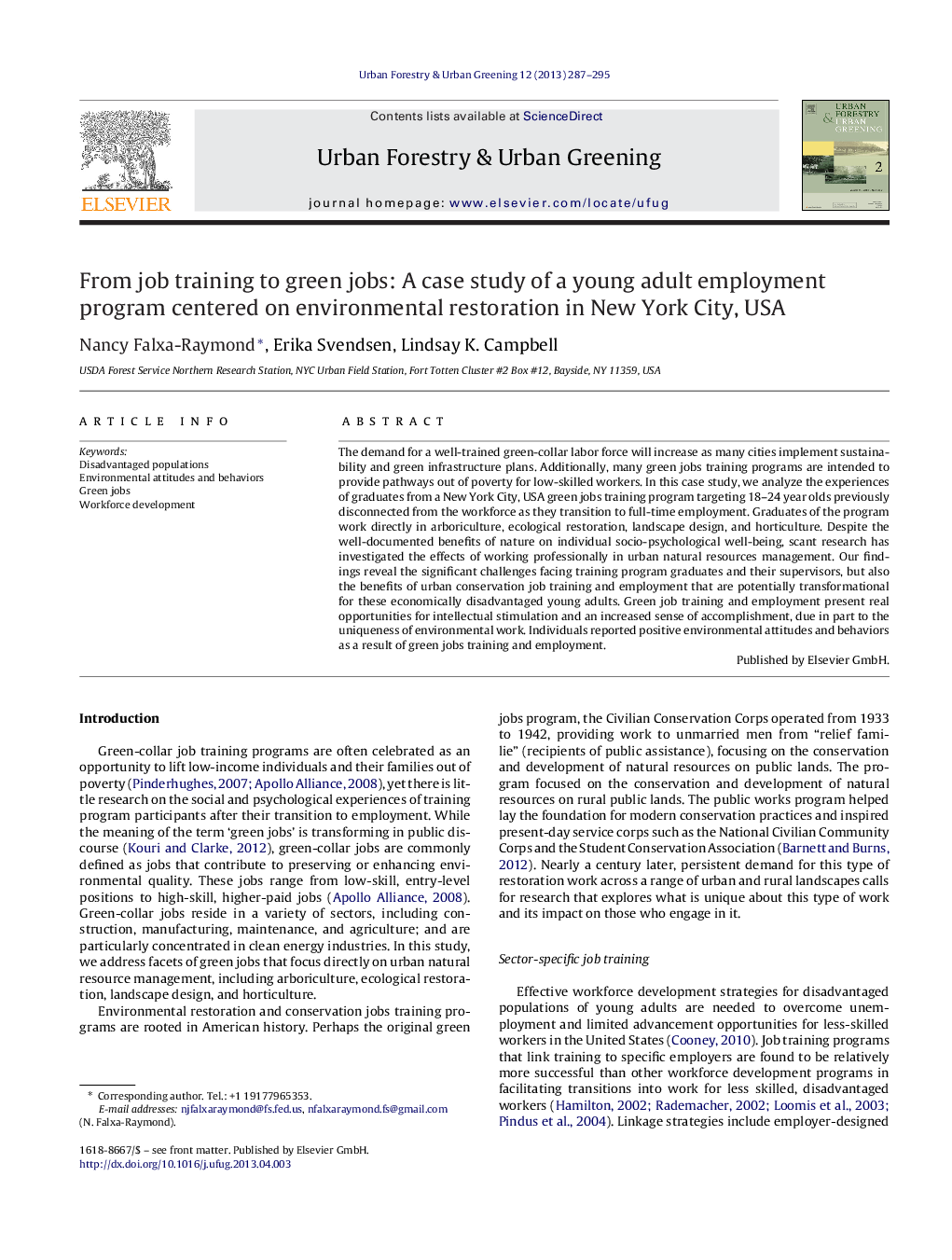| Article ID | Journal | Published Year | Pages | File Type |
|---|---|---|---|---|
| 94039 | Urban Forestry & Urban Greening | 2013 | 9 Pages |
The demand for a well-trained green-collar labor force will increase as many cities implement sustainability and green infrastructure plans. Additionally, many green jobs training programs are intended to provide pathways out of poverty for low-skilled workers. In this case study, we analyze the experiences of graduates from a New York City, USA green jobs training program targeting 18–24 year olds previously disconnected from the workforce as they transition to full-time employment. Graduates of the program work directly in arboriculture, ecological restoration, landscape design, and horticulture. Despite the well-documented benefits of nature on individual socio-psychological well-being, scant research has investigated the effects of working professionally in urban natural resources management. Our findings reveal the significant challenges facing training program graduates and their supervisors, but also the benefits of urban conservation job training and employment that are potentially transformational for these economically disadvantaged young adults. Green job training and employment present real opportunities for intellectual stimulation and an increased sense of accomplishment, due in part to the uniqueness of environmental work. Individuals reported positive environmental attitudes and behaviors as a result of green jobs training and employment.
